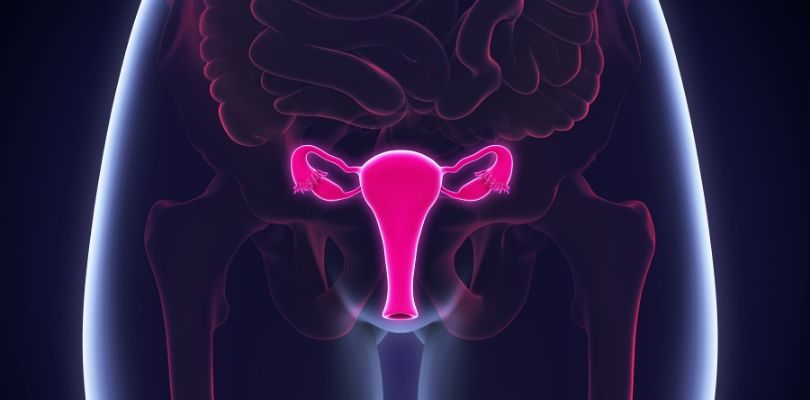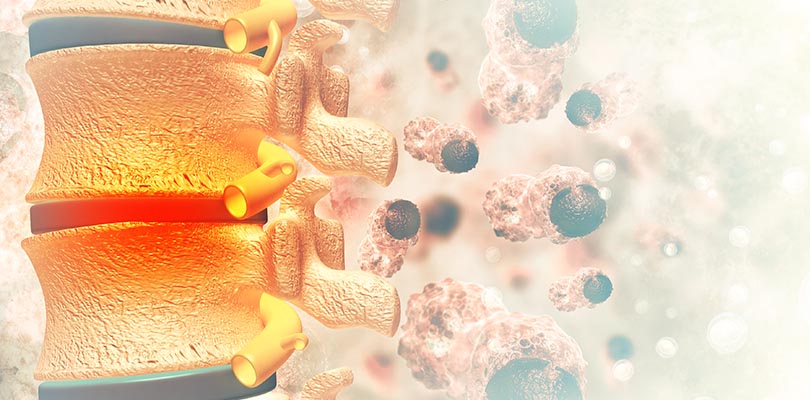Everything You Need to Know about Uterine Sarcoma
Uterine sarcoma is a rare form of cancer. It affects the uterus (womb) but is different from more common forms of uterine cancer such as endometrial cancer and cervical cancer.
In this article, we explain all you need to know about uterine sarcoma, its symptoms, causes and treatment.
What Is Uterine Sarcoma?
Uterine sarcoma is a cancer of the uterus. The uterus is a pear-shaped organ which is made up of three different layers of tissue. These layers are known as the endometrium (inner layer), the myometrium (middle layer) and the perimetrium (outer layer).
The endometrium is affected by hormones and is the layer which women shed each month during their menstrual period. It is made up of tubular glands and connective tissue called stroma.
The myometrium is made up of smooth muscle and the perimetrium is comprised of cells called epithelial cells, which form a barrier around the whole organ.
Uterine sarcoma may affect the myometrium or the stroma. It differs from endometrial and cervical cancers, which are types of carcinoma rather than sarcoma. Sarcomas are far more unusual than carcinomas and may also be more difficult to treat.
Types of Uterine Sarcoma
There are different types of uterine sarcoma. These include the following:
Uterine Leiomyosarcoma (LMS)
LMS affects the myometrium (the muscular layer of the uterus). It is the most common type of uterine sarcoma and tends to grow and spread rapidly.
Endometrial Stromal Sarcoma (ESS)
ESS affects the stroma (connective tissue) of the endometrium. It can be subdivided into two further types, low-grade ESS and high-grade ESS.
In low-grade ESS, cell changes are minimal and the cancer grows and spreads slowly. In high-grade ESS, the cells undergo more significant changes and spread more rapidly.
Undifferentiated Sarcoma
Undifferentiated sarcoma can begin in the endometrium or myometrium. It tends to grow and spread rapidly.
Symptoms of Uterine Sarcoma
The main symptom of uterine sarcoma is abnormal vaginal bleeding. This includes bleeding which is not a part of a menstrual period or bleeding after menopause.
Other symptoms of uterine sarcoma include:
- Abdominal pain
- A sensation of fullness in the abdomen
- Masses inside the vagina
- Frequent urination
Anyone experiencing the above symptoms should see their physician for further investigations.
Uterine Sarcoma Causes
Like all cancers, uterine sarcoma is caused by cells that grow and divide abnormally. This can happen for a number of different reasons.
One of the most common causes of uterine sarcoma is previous radiation treatment in the pelvic area. It can also be caused by a drug called tamoxifen, which doctors sometimes use in the treatment of breast cancer.
In addition to the above, other possible risk factors for urine sarcoma include:
- Being aged 50 years or above
- Being of African-Caribbean descent
- Obesity
- Diabetes
Uterine Sarcoma Treatment Options
There are several different treatment options for uterine sarcoma. The most appropriate treatment will depend on the type of sarcoma and how far it has progressed.
It is widely known that marijuana is used as a medical treatment for a variety of chronic health conditions, but can it really help those with cancer?
Surgery
Most cases of uterine sarcoma will be treated surgically. The aim of surgery is to remove as much of the cancerous tissue as possible before it spreads to other parts of the body. There are three types of surgery which may be performed depending on the stage of the cancer:
- Hysterectomy – the entire uterus and cervix are removed
- Bilateral salpingo-oophorectomy – both fallopian tubes and ovaries are removed
- Lymphadenectomy – the lymph nodes surrounding the uterus are removed
In some cases, all three types of surgery will be necessary. Surgery is associated with certain risks, such as the risk of post-surgical pain or infection. However, it is the most effective way to remove cancerous tissue and is the first-line treatment for uterine sarcoma. In some cases, uterine sarcoma can be identified, diagnosed and treated in the same surgery.
Radiation Therapy
In radiation therapy, high energy radiation is used to destroy cancerous cells and prevent them from spreading. It may be used internally or externally, and is often administered in addition to surgery to kill any cancerous cells that could not be removed.
The side effects of radiation therapy include:
- Nausea
- Sore mouth
- Sore throat
- Skin soreness in the treated area
- Fatigue
Chemotherapy
Chemotherapy uses medication to prevent cancerous cells from growing and spreading. This medication is administered orally or by injection. Like radiation therapy, it is often used in addition to surgery.
The side effects of chemotherapy include:
- Sore mouth
- Nausea
- Vomiting
- Hair loss
- Fatigue
Hormone Therapy
Some types of cancer depend on hormones to grow and spread. Hormone therapy works by blocking the activity of these hormones, or by removing the glands that produce them. Hormone therapy may be useful to prevent uterine sarcoma from returning after surgery and other treatments.
The side effects of hormone therapy depend on the type. They may include:
- Hot flashes
- Vaginal dryness
- Joint or muscle pain
- Increased risk of osteoporosis with long-term use
Immunotherapy
Some types of sarcoma respond to immunotherapy. This is a modern type of cancer treatment which works by enhancing the body’s immune system to prevent cancer cells from spreading. It can be taken orally, by injection, or administered directly to the affected area.
Side effects of immunotherapy include:
- Pain
- Swelling
- Rashes
- Flu-like symptoms, such as fever, chills, headache, nausea and weakness
Uterine Sarcoma Outlook
The outlook for uterine sarcoma depends on many factors. These include the type of sarcoma and how early it is detected.
As with all types of cancer, timely treatment is the key to survival. However, the five-year survival rate for uterine sarcoma is lower than other types of gynecological cancer.
Therefore, it is advisable to familiarize yourself with the symptoms of uterine sarcoma and seek medical attention immediately if they should occur.







